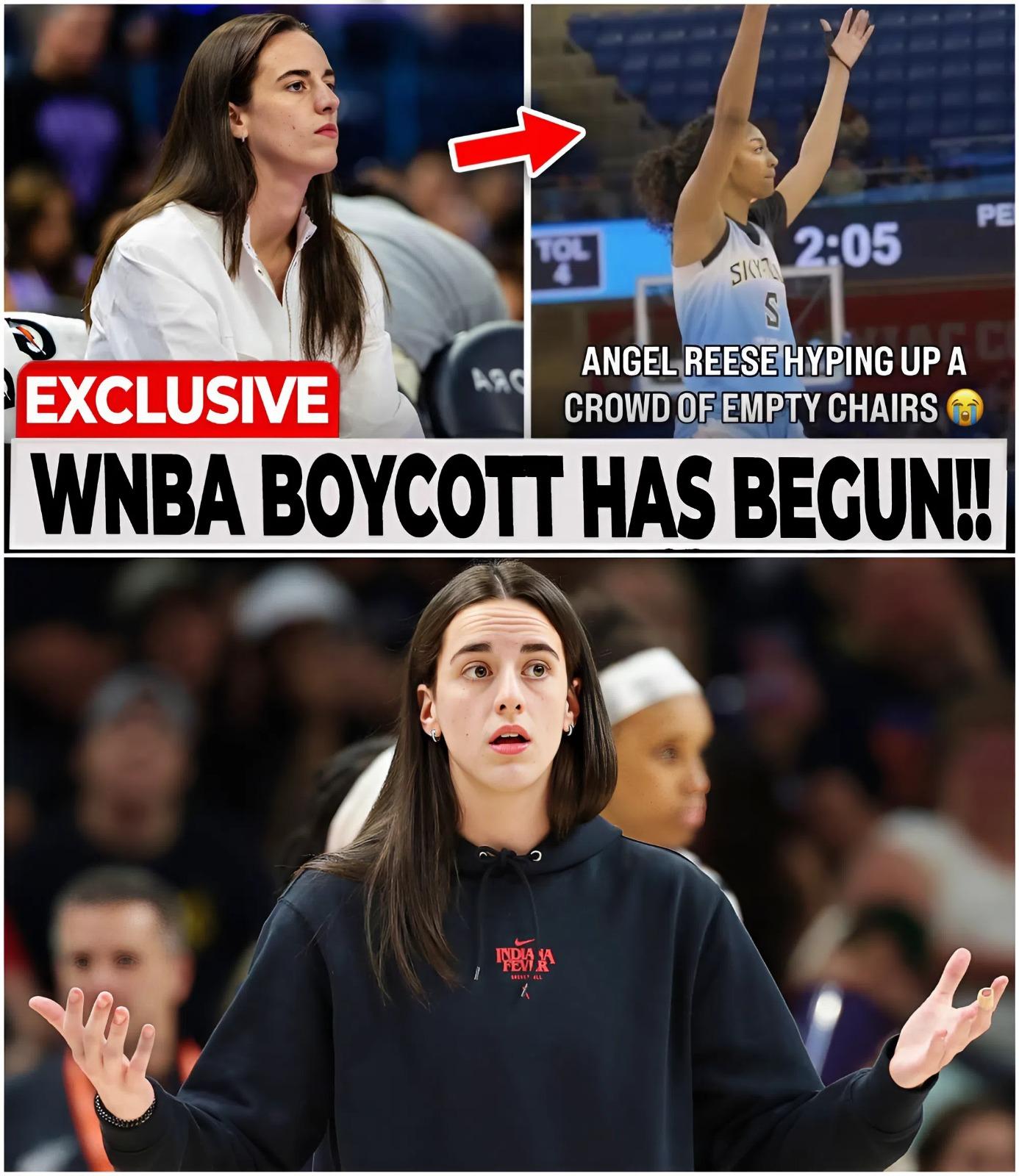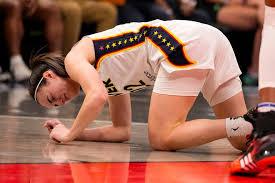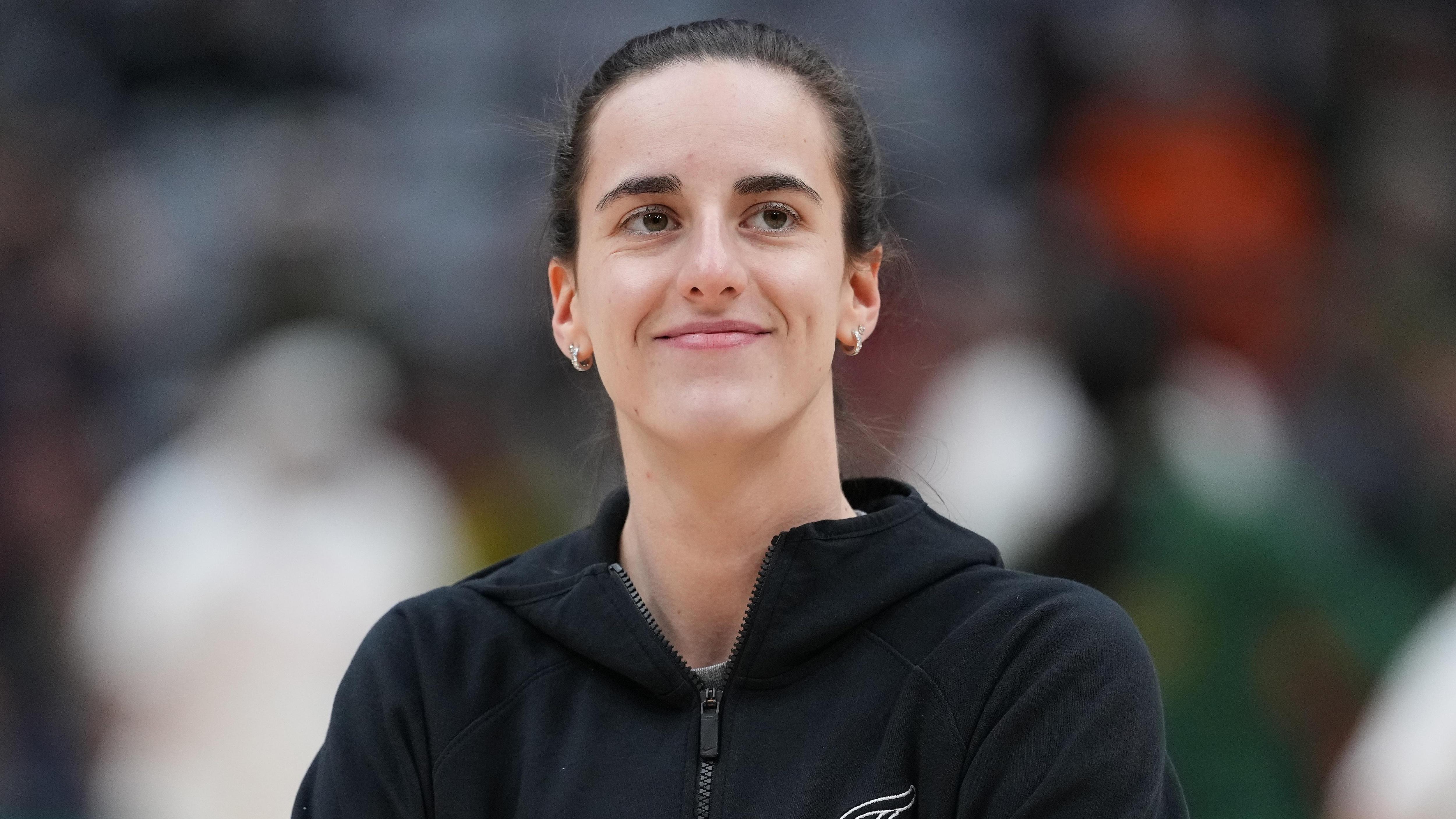The WNBA is facing one of its most turbulent moments in recent years after a leaked video surfaced online, sparking outrage among fans, concern from sponsors, and intense public debate about the league’s integrity. The footage, which quickly went viral across social media platforms, appears to show referees displaying clear favoritism toward star player Caitlin Clark during a recent game. The controversy has not only cast doubt on the fairness of officiating but has also placed the league under immense pressure to address transparency and the protection of its most marketable athletes.

According to those who have analyzed the video, the clip captures multiple moments where questionable calls seemed to benefit Clark’s team, while similar plays involving opponents were either overlooked or penalized harshly. While some have argued that the footage may be taken out of context, others believe it is strong evidence of bias—whether conscious or unconscious—on the part of the officials.
The reaction from fans was swift and unforgiving. Hashtags calling for boycotts of WNBA games began trending within hours, with thousands of supporters expressing disappointment and frustration. Many felt betrayed, stating that the beauty of the sport lies in fair competition, and that any hint of favoritism damages the credibility of the league.
Sponsors, too, have reportedly taken notice. Several key partners of the WNBA are said to be privately expressing concern about how the league is handling the situation. For brands investing millions into women’s basketball, the integrity of the sport is a crucial part of their association. A senior executive at one of the league’s major sponsors, speaking anonymously, emphasized that transparency and fairness are non-negotiable in maintaining their support.

In response to the growing backlash, the WNBA issued a brief statement acknowledging the controversy and promising a full review of the officiating in question. The league emphasized its commitment to fairness and said that any referee found to have acted inappropriately would face disciplinary action. However, critics argue that such statements are not enough, calling for concrete measures such as independent officiating audits and greater use of video replay in controversial situations.
Caitlin Clark, the center of the storm, has remained largely silent on the matter, only posting a short message on her social media channels thanking fans for their support and focusing on her team’s upcoming games. Still, her silence has done little to stop the speculation. Some believe that she is unfairly caught in the middle of a much larger problem within the league, while others suggest that high-profile stars naturally benefit from preferential treatment, whether intentional or not.

Sports analysts have pointed out that controversies over officiating are nothing new, but the combination of Clark’s meteoric rise, her massive fan following, and the WNBA’s push to market her as a face of the league has magnified the impact of this incident. With television ratings and ticket sales closely tied to her appearances, the league now finds itself walking a fine line between protecting its star and upholding the integrity of the sport.
The coming weeks may prove decisive for the WNBA. How it handles this crisis could shape public perception for years to come. If the investigation is transparent and meaningful reforms are introduced, the league could emerge stronger and more credible. But if the response is seen as inadequate or dismissive, the damage to trust and fan engagement could be severe.
For now, the leaked video continues to circulate, fueling heated debates online and in the sports media. Whether it was an isolated incident or a symptom of a deeper issue, one thing is certain: the WNBA is under a spotlight unlike any it has faced before, and every move it makes will be closely watched by fans, players, and sponsors alike.